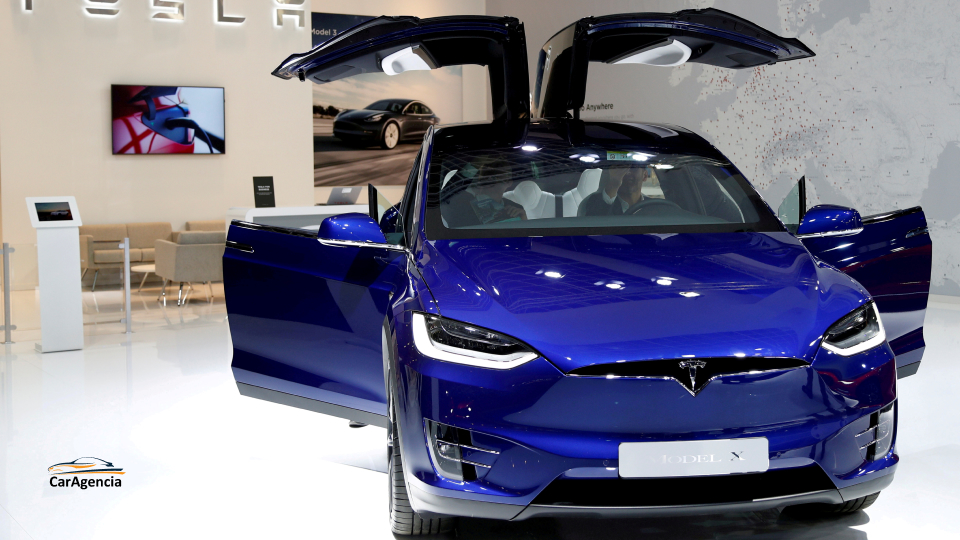 Kiran C
Kiran C
Tesla, a name synonymous with innovation, has rapidly become one of the most admired automotive brands in the world. Whether it’s the sleek designs, groundbreaking technology, or the cult-like following it’s developed, Tesla cars have carved out a unique place in the automotive industry. But what is it about Tesla that makes people love these vehicles so much? Let’s dig into the reasons behind the brand’s growing popularity.
At its core, Tesla is known for leading the transition to electric vehicles (EVs). Unlike traditional automakers transitioning from internal combustion engines, Tesla was born as an EV brand. Its vehicles are powered by advanced lithium-ion battery technology and stand out for their impressive range. For instance, the Tesla Model S offers an EPA-estimated range of over 400 miles on a single charge, which is a game-changer for EVs.
Tesla also invests heavily in its proprietary charging network. Their Supercharger stations make long-distance travel in an EV convenient and stress-free, significantly addressing one of the main barriers for EV adoption—range anxiety. This infrastructure alone has solidified Tesla as a leader in electric mobility.
Tesla cars are as much about aesthetics as they are about innovation. Their streamlined designs merge minimalism with sophistication, making them highly desirable. Inside the cabin, Teslas deliver a high-tech, futuristic experience. From the gigantic touchscreen interface that replaces traditional dashboards to the luxurious materials used, Tesla interiors exude modernity.
However, Tesla isn’t all looks and no substance—these cars also perform exceptionally well. The Tesla Model S Plaid, for example, boasts jaw-dropping acceleration, going from 0 to 60 mph in under 2 seconds. This kind of performance rivals (and even surpasses) that of many high-performance sports cars, while still being emission-free.
One of Tesla’s standout features is its Autopilot, a semi-autonomous driving system that offers advanced driver-assist features. Thanks to a mix of cameras, ultrasonic sensors, radar, and machine learning, Tesla cars can steer, accelerate, and brake automatically in certain situations. While Tesla's "Full Self-Driving" (FSD) remains partially controversial and is still under development, it’s a clear indicator of where Tesla envisions the future of driving—safe, automated, and efficient.
For many owners, Autopilot is more than just a feature; it’s a glimpse into the future of transportation. The allure of being at the forefront of groundbreaking technology is irresistible to tech enthusiasts and everyday drivers alike.
While many car enthusiasts fall in love with Tesla's performance and technology, others are drawn to its commitment to sustainability. Tesla’s mission is to “accelerate the world’s transition to sustainable energy,” and the brand has backed up its words with actionable steps.
From producing zero-emission vehicles to implementing solar energy solutions (like Solar Roofs and Powerwalls), Tesla aims to reduce humanity’s carbon footprint. For environmentally-conscious consumers, owning a Tesla is more than buying a car—it’s a statement about their values and a contribution to a cleaner planet.
Tesla treats its vehicles almost like smartphones. After purchasing a Tesla, owners benefit from over-the-air (OTA) software updates that improve their car’s performance or add new features. For instance, a simple OTA update can increase acceleration, introduce new entertainment options, or enhance safety features.
This software-driven approach ensures that Tesla owners are always driving a car that feels fresh and up-to-date, a quality that is unique in the automotive world. This constant innovation keeps customers excited and engaged with their vehicles long after purchase.
Elon Musk, Tesla’s CEO, has undeniably cultivated a brand identity that sets the company apart. Musk’s ambitious vision for the future of sustainable transportation and space exploration has earned him fans worldwide. Tesla’s marketing strategy relies heavily on word-of-mouth and its loyal customer base, which often serves as brand ambassadors.
Tesla also fosters a sense of community among its users. Whether it's through online forums, fan events, or Tesla-specific social media groups, Tesla owners feel like they’re part of something bigger. This level of customer loyalty and community engagement is rare in the automobile industry.
Tesla cars also tend to hold their value better than many other vehicles. Reports often highlight lower depreciation rates for Teslas, which is great news for owners who may want to sell or trade their car down the line. The combination of innovative technology, strong brand reputation, and growing demand helps Tesla maintain its value on the market.
Tesla cars represent more than just a mode of transportation—they symbolize innovation, sustainability, and a glimpse into the future. Whether it's the cutting-edge technology, luxurious performance, or environmentally-friendly mission, Tesla appeals to a wide range of people for different reasons.
If you’re considering a Tesla, you're not just buying a vehicle. You’re joining a global movement that values progress, sustainability, and groundbreaking technology. It’s no wonder that people can’t stop raving about Tesla cars—they’re as much an experience as they are a product.